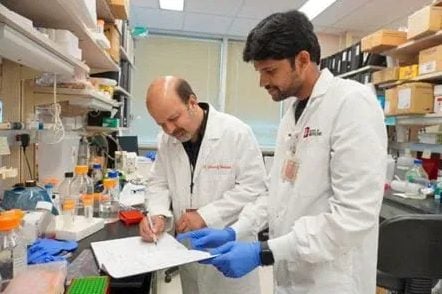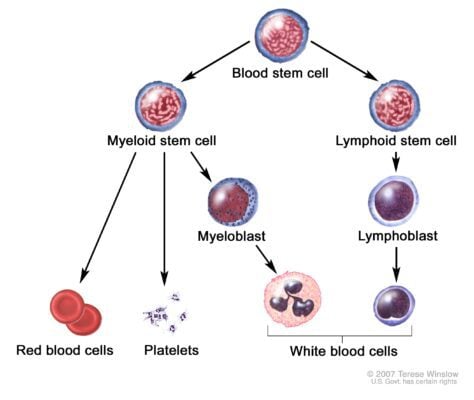Scientists at Indiana University School of Medicine have identified a new approach that could transform treatment for acute myeloid leukemia (AML).
The strategy, detailed in a recent study published in Nature Communications, focuses on eliminating the blood cancer’s most resilient cells and the environment that protects them.
AML is one of the most common types of leukemia in adults and is known for its high relapse rate, even after intensive treatment. A key reason, according to researchers, is that leukemia stem cells tend to resist therapy and continue fueling the disease.
“Our research was inspired by the urgent need to target these resilient cells,” said Santhosh Pasupuleti, assistant research professor of pediatrics and co-author of the study. “Our approach provides a way to overcome treatment resistance by targeting the harmful leukemia stem cells and the protective environment around them, which are like the ‘seed and soil’ of leukemia.”

The study reveals that leukemia stem cells release a molecule called Interleukin-33 (IL-33) that acts as a stress signal. This signal activates a protein, Interleukin 1 receptor-like 1 (IL1RL1), on both leukemia cells and surrounding immune cells, creating a feedback loop that helps the cancer survive and grow while suppressing the immune system’s ability to fight back.
To interrupt this process, researchers at IU, the Medical University of South Carolina Hollings Cancer Center and Memorial Sloan Kettering Cancer Center developed a specialized antibody. This antibody enables immune T cells to better recognize and destroy leukemia stem cells and also blocks the IL-33 signaling that shields them from immune attack.
In preclinical models using both mice and human leukemia cells, the antibody treatment was effective in eliminating leukemia stem cells and controlling the disease.

“We hope this study opens the door to a new generation of immunotherapies for leukemia,” said Reuben Kapur, director of the Hematologic Malignancies and Stem Cell Biology Program at the IU School of Medicine and co-author of the study. “Ultimately, our goal is to develop therapies that prevent relapse and improve survival in patients with acute myeloid leukemia and possibly other difficult-to-treat cancers.”
The team plans to continue developing the treatment toward clinical trials for AML and explore its potential impact on other forms of cancer. The research was funded by the National Institutes of Health.
This reporting is made possible by a grant from the Indianapolis African-American Quality of Life Initiative, empowering our community with essential health insights. https://iaaqli.org/
Contact Health & Environmental Reporter Hanna Rauworth at 317-762-7854 or follow her on Instagram at @hanna.rauworth.
Hanna Rauworth is the Health & Environmental Reporter for the Indianapolis Recorder Newspaper, where she covers topics at the intersection of public health, environmental issues, and community impact. With a commitment to storytelling that informs and empowers, she strives to highlight the challenges and solutions shaping the well-being of Indianapolis residents.





